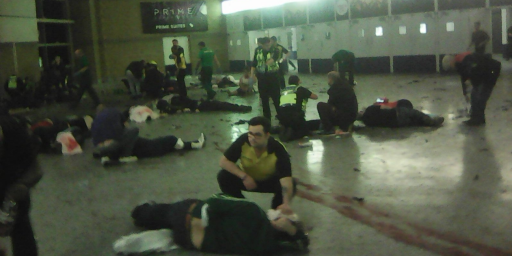EVERYBODY’S A CRITIC
Daniel Drezner makes an interesting point this morning:
One of the amusing aspects of being a professor is watching the evolution of graduate students.
During their first two years — when they’re immersed in coursework — they become excellent critics. As they sharpen their analytical skills, they excel at exposing the flaws of every article or book put in front of them. By the end of their coursework, they are thoroughly unimpressed by the cutting edge of the literature.
Of course, that’s usually the point at which they have to start drafting their own work. At which point they discover that the enterprise of developing original work is a wee bit trickier than it appears to the critical eye. And suddenly, the stuff that they had savaged six months earlier doesn’t look so bad.
The good students, after getting the wind knocked out of them, develop the proper equipoise between the proper respect for the good but imperfect work that’s out there and the proper disdain for the hackwork that, to be blunt, pervades most of the social sciences.
Indeed all around.
This brings to mind the immortal words of Teddy Roosevelt:
The credit belongs to the man who is actually in the arena; whose face is marred by dust and sweat and blood; who strives valiantly; who errs and comes short again and again; who knows the great enthusiasms, the great devotions, and spends hims.elf in a worthy cause; who at the best knows in the end the triumph of high achievement; and who at the worst, if he fails, at least fails while daring greatly.
Most of us are great critics, but that’s a comparatively easy task. We constantly criticize politicians, generals, coaches, and others for failure without really knowing what we’re talking about. At least with respect to political leaders, this isn’t a totally bad thing: forcing them to explain themselves constantly is a key way to maintain accountability. But we should remind ourselves occasionally that what they’re doing is, well, hard. In many cases–like, say, bringing peace to the Middle East–virtually impossible.






Thanks for a generous view of how things actually work. It’s nice to know that there are those with solid control over their knees!